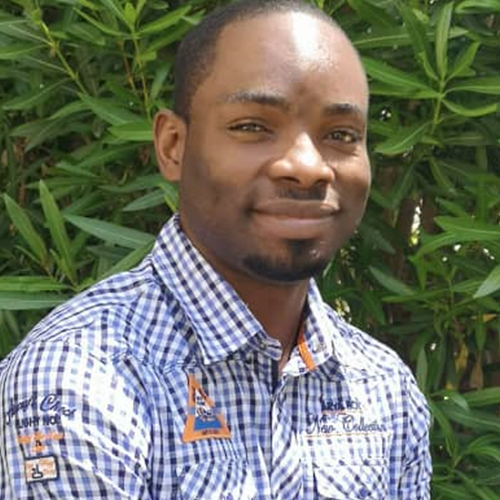
Judicaël Obame-Nkoghe
Country (Nationality)
Gambia
Grantee Title
Project: What are the bioecological drivers underlying the invasive success of Aedes albopictus, and risks of arbovirus emergence in Gabon, Central-Africa?
Grantee Description
Country of nationality:
Gabon
Research area:
Vector biology and arboviruses
Host Organisation & country:
Masuku University of Science and Technology, Gabon
Summary
The tiger mosquito has become a major cause of vector-borne diseases in African countries. Dr Obame-Nkoghe’s research will investigate the underlying drivers, including response to environmental stressors and the genetic variability of this species that could explain its invasive success and influence of its vector role for health-threatening viruses in invaded territories.
Grantee Description
Dr Judicaël Obame-Nkoghe is a medical entomologist researcher and lecturer at the University of Science and Technology of Masuku in Gabon. He obtained his Ph.D. in Medical Entomology in 2016. His research focuses on understanding vector systems (ecology, adaptation, vector invasions, vector transmission of pathogens) and how they model the epidemiological patterns of vector-borne infectious diseases.
Dr Obame-Nkoghe’s long-term aspiration is to continuously expand and embrace new biostatistics, genetics and modelling methodologies in studying vector-borne and zoonotic diseases. He aims to build research capacities and advance a research niche on vector-borne and zoonotic diseases in Africa. He aspires to train young African scientists, promote research excellence and leadership, and conduct research informing policy decisions to improve human health.
Project: What are the bioecological drivers underlying the invasive success of Aedes albopictus, and risks of arbovirus emergence in Gabon, Central-Africa?
Ongoing studies in Central Africa revealed that the spread of Aedes albopictus continued across remote sylvan ecosystems in absence of humans, showing thus a relatively large ecological plasticity. This plasticity presupposes its predisposition to cross the bioecological barriers encountered during its invasion process, as well as its potential to be a bridge-vector for several zoonotic-emerging viruses between wild and anthropogenic compartments. While studies in Central Africa revealed a distribution of Ae.albopictus tending to be associated with a decline or replacement of native mosquito species populations (e.g., Ae.aegypti), the bioecological drivers, including response to biological, physicochemical stressors, and the Ae.albopictus genetic variability that could explain its invasive success and influence its vector competence for health-threatening viruses in Gabon, across different environmental contexts, remained poorly explored. Characterizing these drivers underlying the invasive success of Ae. albopictus is crucial for effective vector control measures against emerging arboviruses. The Dr Obame-Nkoghe’s research will uncover and dissect those drivers with the specific objectives to evaluate the bioecological limits, the genetic structuration and bases of the adaptation of Ae. albopictus populations following an ecological gradient. The project will also allow to characterize its relationships with native mosquito species sharing the same habitats and assess, based on virus screening and vector competence assays associated to modelling technics, the arboviruses’ emergence risk. The project will ultimately contribute effectively to the development of arboviruses’ control strategies in this part of the world.
